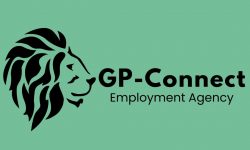The Dutch health insurance is compulsory for all people who live or work in the country. The people that are coming outside of the European Union, such as EEA and Switzerland that arrive in the Netherlands must take a health insurance within four months of receiving their residence permit, even if they are already have an existing foreign policy. But, the European citizens or Swiss nationals who are working in the Netherlands must take a Dutch health insurance within four months of registering at their city hall and receiving their BSN number.
What does the Dutch law say?
Every person who resides or works in the Netherlands is required by law to purchase basic health insurance (Basisverzekering), which pays for things like doctors appointments, hospital readmissions, and meds.
There are three different packages for the basic health insurance:
- Beperkte Keuze (cheap but only covers a small range of medical care)
- Ruime Keuze (covers a large range of medical care)
- Vrije Keuze (expensive but covers all types of medical care)
You can choose to purchase supplementary insurance to cover costs not provided by the basic plan if you require specific medical attention. The cost of this package, along with supplemental insurance or dental insurance, is the same across all insurance providers. The Dutch health insurance system is often known as Eigen Risico (Latin for “Own Risk”) since you can customize it to meet your own medical requirements. You can learn more about the meaning of Eigen Risico here.
What can happen if you don’t get a health insurance?
If you don’t get a health insurance, it might result in two €382,50 fines. The Dutch government will provide you with the required insurance at a cost of €134,38 per month after 9 months of being uninsured. Therefore, you must enrol in health insurance as soon as you can after arriving in the Netherlands. If you don’t, you will be compelled to pay back benefits beginning with the day of your arrival (e.g. if you arrive in June but wait to sign up for insurance until September, you will be required to pay the monthly rate for June-August in addition to September).
How can you choose the right general practitioner or dentist?
It is essential to choose a general practitioner and a dentist. You can ask your healthcare provider for available doctors & dentists in your area. Unfortunately, sometimes a doctor or dentist will have a patiëntenstop (‘patient stop’). This means that they already have a full patient list and cannot take any new patients, in which case you will need to choose another. If you have an urgent medical condition and your doctor is not available, you should call an after-hours medical service (huisartsenpost). They will tell you whether to visit them or go straight to the emergency hospital. You must make sure to bring your health insurance card in both situations.
Which health insurance company should you choose?
Insurance providers are all private companies and there are many to choose from.
Here are just a few examples:
Check this comparison site to compare the fees of different healthcare providers. But, GP-Connect can help you with this matter too.
How to apply for a Dutch health insurance?
You merely need to visit the corporate website to submit an application for the Dutch health insurance package you desire, whether it is just the basic insurance or a supplement. There is no need to wait because it is simple and quick to complete.
All you need to apply for the insurance is a Dutch residency address, a BSN number, and a Dutch bank account.
The national emergency services number (to call the police, an ambulance, the fire brigade, etc) is 112.
Don’t forget to take a look at our open positions to boost your career in the hospitality industry today!




